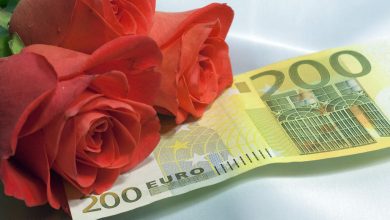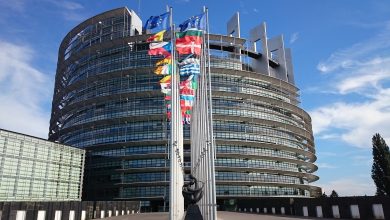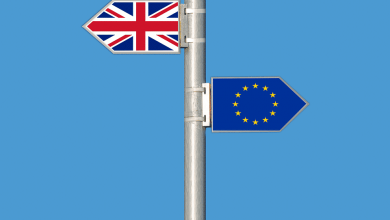With Elections Looming, the EU is Getting Serious on Defence
The newly elected Parliament will have to decide just how much money to put into European defence

Twenty-six years after the Treaty of Maastricht, and with EU elections round the corner, the European Union is finally getting serious on defence. The news comes after the approval of the European Defence Fund, which is entirely devoted to industrial cooperation and military procurement, to the tune of thirteen billion euros. Rumours are also circulating that a new, dedicated Directorate General is in the works at the European Commission, My Country? Europe understands from sources close to the matter. Directorate Generals are essentially the European equivalent of ministries, and the establishment of a defence and security DG has been floated multiple times in the past. Now, it looks set to become a reality.
Naturally, this is no EU army. The Defence Fund is mainly designed to help Member States design, develop and build equipment together, by reducing duplications of efforts. The new DG would potentially be an even bigger development, with the Commission finally taking on security responsibilities, although it will take some time to figure out just how many competencies it will have, besides overseeing the implementation of the Fund.
Most fundamentally, these two developments are an unmistakable symptom of the rapidly shifting security culture in Europe. The three-pronged effect of Brexit, Russian military aggression, and Trump’s diplomatic brinkmanship, is pushing the EU away from its Kantian “island of peace” mentality, and more towards becoming an entity that can defend itself. Crucially, however, both the Defence Fund and the new DG will only become operational after the new MFF (Multiannual Financial Framework) is approved, covering the years 2021 – 2027. The next European elections will be crucial in determining the composition of the Commission and the Parliament that will agree to the new MFF, and therefore, how much money will go into European defence.
Defence on a Budget: The Fund
Duplication of efforts remains one of the most expensive problems affecting European defence: too often, Member States pour money, time and energy into developing the same thing independently of each other. According to the Commission’s estimates, this costs European countries a total of anywhere between 25 and 100 billion euros each year.
The European Defence Fund aims to ameliorate that. Whenever three or more Member States decide to work together on research and development, they will be able to call on the Fund for help. The EU will, then, co-finance both research and production with the Member States involved.
Projects eligible for this co-financing range from weapons to aircraft and from logistical infrastructure to drones and satellites, but some items are excluded from the list: nuclear and chemical weapons, all weapons banned under international law, and autonomous lethal weapons are off the table.
Increasing cooperation will, in the Commission’s intentions, both save money and allow European industry to achieve better results. And this is very much an industrial manoeuvre as much as it is a security one. The Fund is squarely aimed at industrial cooperation, rather than operational military considerations. The idea is that closer coordination between industries will create more qualified jobs, as well as render the EU less dependent on others for its military procurement. Indeed, that dependency is one of the largest obstacles to the creation of Union-wide armed forces.
The Role of European Elections
The European Parliament has agreed to give up parliamentary oversight over the Fund – not without controversy and protests from opposition MEPs. That, however, does not mean that the Parliament has no role to play. For now, the Defence Fund is budgeted at thirteen billion euros a year, but the financial part of the deal that will establish it has been left outstanding. The next European Parliament will decide just how much money the Fund will get when it sits down to negotiate the next Multiannual Financial Framework (effectively the EU budget) for the next seven years.
This discussion will happen a few months down the line, and the implication is clear: it is the newly elected Parliament that will be called on to decide the future of the Fund. Voters have a strong interest in making sure that said Parliament represents their wishes.

The Directorate-General
The establishment of a Directorate-General solely devoted to European defence is not a new idea – in fact, it has circulated for years. No acceptable political solution was ever found to move forward, however, with the Commission eventually shirking away from the defence responsibilities this would entail. According to sources in Brussels, that is about to change: the new DG would be responsible for coordinating defence industrial policy. More specifically, it would oversee the implementation of the Defence Fund, and its allocation to Member States.
At time of writing, it remains unclear how many competencies will fall to this new DG, since the defence industry environment is wide and has a number of different players in it, ranging from satellite and communications technology to aeronautics, shipbuilding, etc. There will be, no doubt, several internal political wranglings to resolve before a full set of responsibilities are agreed upon. If the Directorate General is to oversee the Fund, however, it would be reasonable to expect its inauguration next year.
An Island Of Peace?
The EU is perceived by many as having finally brought peace to the European continent, which had previously been ravaged by devastating wars. The narrative is rooted in truth and widely recognised – not for nothing Brussels was awarded the Nobel Peace Prize in 2012. In multiple occasions, the Union has been hailed as an “island of peace”, a unique political space in which conflict resolution happens via peaceful means, rather than through deterrence and military confrontation.
This view is not false – but it is limited, and there is more to the story. Many of the ideals and practical considerations currently associated with the EU, like a continental customs union or the single market, the importance of cooperation etc., were largely already present in political discourse well before 1945. The interwar years, in particular, saw a real, concerted effort at preventing future deflagrations by establishing a European, supranational organisation. And yet, one key ingredient was missing: the willingness on the part of the European great powers to give up their ability to act unilaterally.

This willingness only truly kicked into high gear when European countries realised they were incapable of formulating independent world-politics. Losing the colonies, in particular, denied France and Britain the logistics to project power all over the world. Germany itself had enjoyed this ability before the Great War and was in no position to reclaim it after 1945. It wasn’t simply the preponderance of American and Soviet power that pushed European great powers to pool their sovereignty, it was their sudden reduction to a periphery.
This leads us to a fundamental point: EU integration is, in effect, a multiplier of the clout and importance of individual Member States on the world stage. After the Suez Crisis, in which the United States forced France and Britain to stand down, Konrad Adenauer told the leaders of the two countries that “Europe will be your revenge”. He was clearly framing the European project as an issue, not just of peace, but also of security and power. At the same time, European integration has allowed smaller countries, which in the past had succumbed to, or been drawn to their larger neighbours, to better define their national identities. That is the case for countries like the Netherlands, for instance.
When looking at a map of Europe today, it’s hard not to come to the conclusion that Adenauer was right. The number of sovereign states in Europe has more than doubled since 1914. Where multi-ethnic empires partitioned the continent between each other a century ago, nation-states are now the norm. European integration is not in contradiction with national sovereignty, nor is it merely complementary to it. It gave it room to grow, safe from the predatory acts of powerful empires.
European integration has also enabled national sovereignty to survive intact into the 21st Century, in an environment that would have otherwise led to the disintegration or profound destabilisation of European countries. One only needs to look at the Western Balkans, Belarus, and Ukraine, those countries that did not join any layer of wider European integration at the end of the Cold War. All face very tough questions about their identity and in some cases even their future existence.
This argument is weakened, however, by the existence of countries like Norway, which are outside the EU, but are economically integrated with the rest of the continent, and are protected by the wider transatlantic alliance. NATO is, undoubtedly, the other institution that can be credited with guaranteeing European security. Its existence has, so far, allowed EU integration to mostly operate in the realm of soft power.
Brexit, Trump, and Putin threaten to destabilise this neat division of labour. In that respect, it’s no surprise that the European Commission is stepping up to coordinate European defence, and crucially, to establish a closer relationship with NATO. Whether it has the budgetary means to do so, however, will depend on the outcome of the European elections later this month. The new Parliament and the new Commission will be tasked with the gargantuan effort of solving the dilemma of European security. It won’t be easy – but all voting citizens can play their part in this endeavour, by casting their votes in the largest democratic exercise on the European continent.





